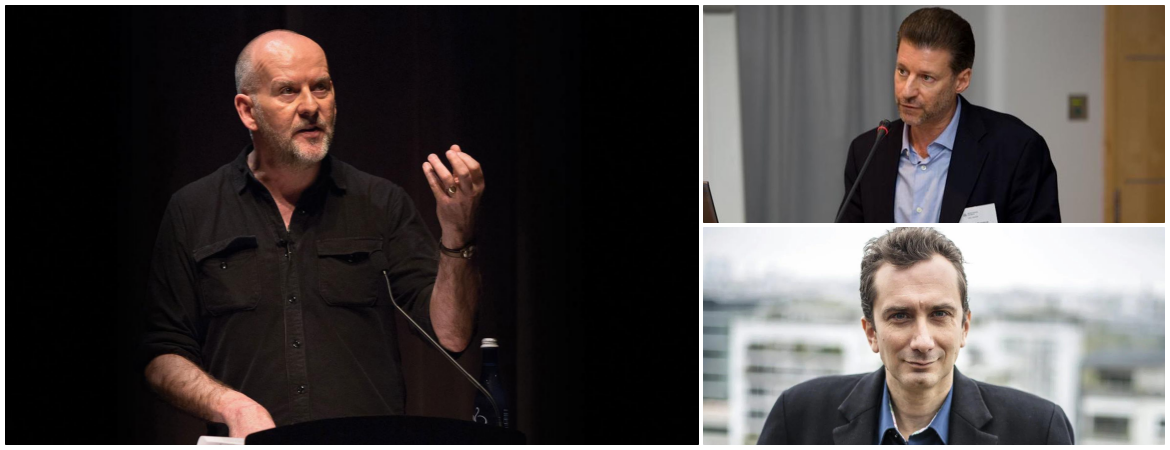
International intellectuals continue to express their support for the ongoing peace process in Turkey.
French historian Jean-Numa Ducange sent a message of support regarding Mr. Abdullah Öcalan’s 27 February “Call for Peace and Democratic Society.” Ducange's message reads as follows:
"I support your initiative. The Kurdish people's struggle for their existence is all the more legitimate and necessary given that, today, on an international scale, it is largely underestimated.
Many demonstrate for Palestinian rights but have forgotten the Kurdish cause. It is more necessary than ever to support it from a democratic and peaceful perspective.
The Kurds also have a voice, with the prospect of a democratic and social republic.
If internationalism still has meaning, it must be fully applied here in concrete terms by ensuring a common future for the Turkish and Kurdish peoples."
Jean-Numa Ducange serves as a professor of contemporary history at the University of Rouen Normandie and is a member of the Institut Universitaire de France. His research centers on leftist movements in French- and German-speaking countries, as well as the enduring influence of the French Revolution in the modern era.
William I. Robinson, Distinguished Professor of Sociology at the University of California, Santa Barbara (USA), also expressed his support for the peace process in Turkey:
"I write to Kurdish leader Abdullah Ocalan and to the DEM partyto express my support for the peace process underway in Turkey. We are living through a time of deep crisis andmomentous transformations in the world order. Our epoch is full of great dangers but also opportunities that force us torethink how poor and dispossessed majorities may push forwardthe struggle for emancipation in our tormented global society. The Kurdish experience in recent years with DemocraticConfederation gave us a window into how autonomous strugglesfrom below based on participatory democracy – even whenfaced with the most adverse of circumstances – can challengepatriarchal oppression, class exploitation, and politicaldomination. The PKK has proposed now to transition from an armed struggle into a peaceful socialist social movement. Several things must happen for this process to move forward. First, there must be a political opening in Turkey that allows forthis transition. Second, the Kurdish struggle against ethnicoppression must unite with the proletarian class struggle forsocial transformation through peaceful mass mobilization in thecivic arena, as there can be no real peace without social justice. And third, Abdullah Ocalan must be released from prison as theundisputed leader of this peace process and as someone who is central to Turkey’s future."
Robinson is an American professor of sociology at the University of California, Santa Barbara. His work focuses on political economy, globalization, Latin America and historical materialism.
British philosopher Simon Critchley likewise sent a message of support regarding Mr. Öcalan’s “Call for Peace and Democratic Society”:
"Abdullah Öcalan's Call for Peace and a Democratic Society on 27 February 2025 came at a time when the drums of war were beating across the globe. I believe this call represents an inspiring breakthrough for anti-capitalist and opposition movements. While dissolving the organisation he founded, Öcalan also proposes an ideological transformation and, as a democrat who believes in the power of words, chooses public imagination over weapons.
I fully support the Kurds, one of the world's largest stateless nations, in defending a non-nationalist form of belonging. I hope that Öcalan's conditions are rectified as soon as possible and that the paths for his active participation in democratic politics are opened."
Since 2004, Critchley has been teaching philosophy at the New School for Social Research in New York, focusing on Continental philosophy, the history of philosophy, literature, ethics, and politics. He has served as a visiting professor at the Universities of Nijmegen, Sydney, Notre Dame, Cardozo Law School, and Oslo. In recent years, Critchley has increasingly focused on the possibilities of developing an anarchist-inspired leftist politics.
11 October 2025
